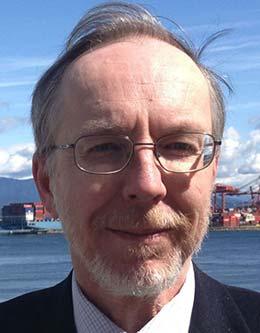New group plans to educate with facts on resource sector

A 10% boost in BC’s natural-resource economy would mean an extra $2.137 billion in BC’s GDP, an extra $4.5 billion across Canada, and more than 39,000 new jobs in BC.
And 55% of those jobs would be in the Lower Mainland, said Philip Cross, former chief economic analyst for Statistics Canada.
He said that 10% boost in our natural resource output is indeed realistic.
The former chief economic analyst for Statistics Canada now applies these rigorous standards to his role as Senior Research Fellow at Resource Works.
Resource Works is a new, non-profit think tank, based in BC, that researches and discusses natural-resource issues and industries in and affecting BC.
“We recognize that BC has a long and proud tradition of resource development, one that includes constant innovation to expand economic benefits while reducing environmental footprints and social costs,” said Stewart Muir, executive director for Resource Works.
He said Resource Works is bringing together leaders from many different interest groups, broadly representing much of BC society, including a former premier; a former federal minister; First Nations; union, business and civic leadership; academics from the environmental and physical sciences, and economists.
These individuals have come together as an Advisory Council to direct Resource Works’ research into the economic impacts of resource development and to provide neutral, fact-based information to citizens and decision makers.
The advisory group includes Lori Ackerman Mayor of Fort St. John, Lyn Anglin, the former President and CEO of Geoscience BC, James Brander, the Asia Pacific Professor of International Business in the Strategy and Business Economics Division of the Sauder School of Business at UBC, Tai Cheng, General Counsel for the Fulida Grou, David Emerson, former Canadian Minister of Foreign Affairs, Yong-Jae Kim a partner in Gowlings’ Vancouver office and Dan Miller, the former Premier of British Columbia.
Leave a comment






